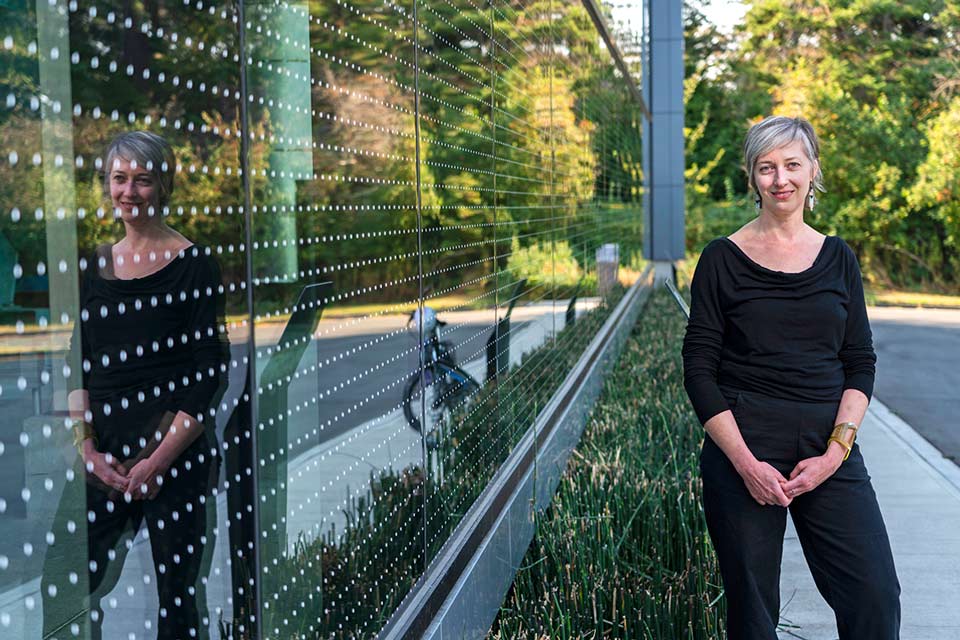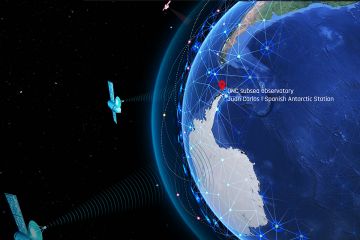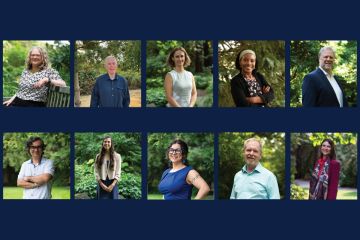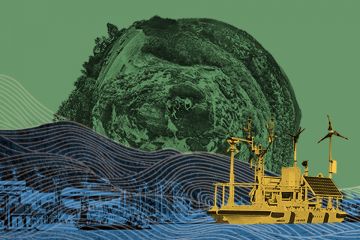Clean energy future
- Anne MacLaurin

Wind and solar power poised to rebalance urban-rural divide
Rural and Indigenous communities are poised to play a central role in Canada’s low-carbon energy future, according to one of Canada’s top energy transition researchers. UVic geographer and civil engineer Christina Hoicka explains that as the impacts of climate change—heat waves, storms, fires and flooding—grow, a massive upscaling of renewable energies will be required.
Electricity will be at the core of Canada’s energy transition—especially in transportation and heating. Electric vehicles and heat pumps will need to be deployed on a large scale, and the most promising way to support this new electricity demand is solar and wind. The latest data shows solar and wind technology are market-ready and cost less than coal to implement—and often the best land for the purpose is far from the cities where the bulk of the energy is needed.
Making the best of that divide is essential.
As Hoicka points out, renewable energy can be a source of local economic development and community revitalization that provides jobs for those in industries under transition.
Indigenous communities can be at the heart of this shift to solar and wind systems. When we understand the local socio-economic benefits, we can design good (and just) policy.”
—UVic geographer and civil engineer Christina Hoicka
“Globally, it will take $130 trillion in investment to scale up renewable energy,” says Hoicka, who is also the Canada Research Chair in Urban Planning for Climate Change.
Canada’s share of that investment is sizeable, and communities will need to direct land-use decisions about where solar and wind renewables will be installed as local and regional energy grids get developed. As an international expert on energy transformation, Hoicka knows there must be socio-economic benefits to communities that adopt renewables.
“Renewable energy is a more landscape-specific technology than fossil fuels, affecting land uses, communities and natural settings—and every context is different in terms of industrial and community needs and transitions,” explains Hoicka.
In collaboration with First Nations representatives, Hoicka has partnered with Clean Energy BC and New Relationship Trust—a government-to-government body leading investment decisions and change management in BC’s Indigenous communities—to document local community experiences of the socio-economic benefits of producing renewable energy.
Starting this fall, Hoicka and her grad students will interview up to 92 Indigenous communities about how renewable energy generation has benefited their local economies and communities.
Since the socio-economic benefits to local communities are not well documented, Hoicka and her team hope this new project will contribute first-hand information to help decision-makers advocate for a First Nations Power Authority.
“Many First Nations communities have already expressed an interest in renewable energy,” explains Hoicka. “It can contribute to community revitalization and provide new forms of revenue.”
“Meta studies show the distribution of benefits around renewable energy in local communities, affects public acceptance,” says Hoicka.
Scaling up renewable energy capacity means rural communities will eventually be delivering power to cities—so the socio-economic benefits need to be understood and fairly distributed to communities.
“Power systems in the future will be more of a web or network connecting local to regional; much different than what we have now,” says Hoicka.
“Renewable energy transitions won't be easy,” adds Hoicka, “and to ensure a just transition it requires planning and implementing changes by bringing together communities, workers and decision-makers under a short timeframe to limit a warming climate.
UVic's climate leadership
- UVic is the world’s second top-performing university for climate action, according to this year’s Times Higher Education Impact Rankings, and has one of the highest concentrations of clean energy researchers at any university in Canada.
- UVic’s Institute for Integrated Energy Systems (IESVic) has nearly 50 years of research leadership charting feasible pathways to sustainable energy systems through the development of new technologies, processes and systems.
- UVic hosts and leads the Pacific Institute for Climate Solutions (PICS), a first-of-its-kind climate research collaboration between UVic, SFU, UBC and UNBC that develops innovative, evidence-based climate solutions knowledge. The institute brings together decision makers within government, industry and communities to conduct research that will help the province and the world become net-negative carbon emitters, while being ready for the opportunities and challenges of a changing climate.
Photos
In this story
Keywords: sustainable impact, climate action, clean energy, research, sustainability, geography, civil engineering, mapping
People: Christina Hoicka
Publication: knowlEDGE






